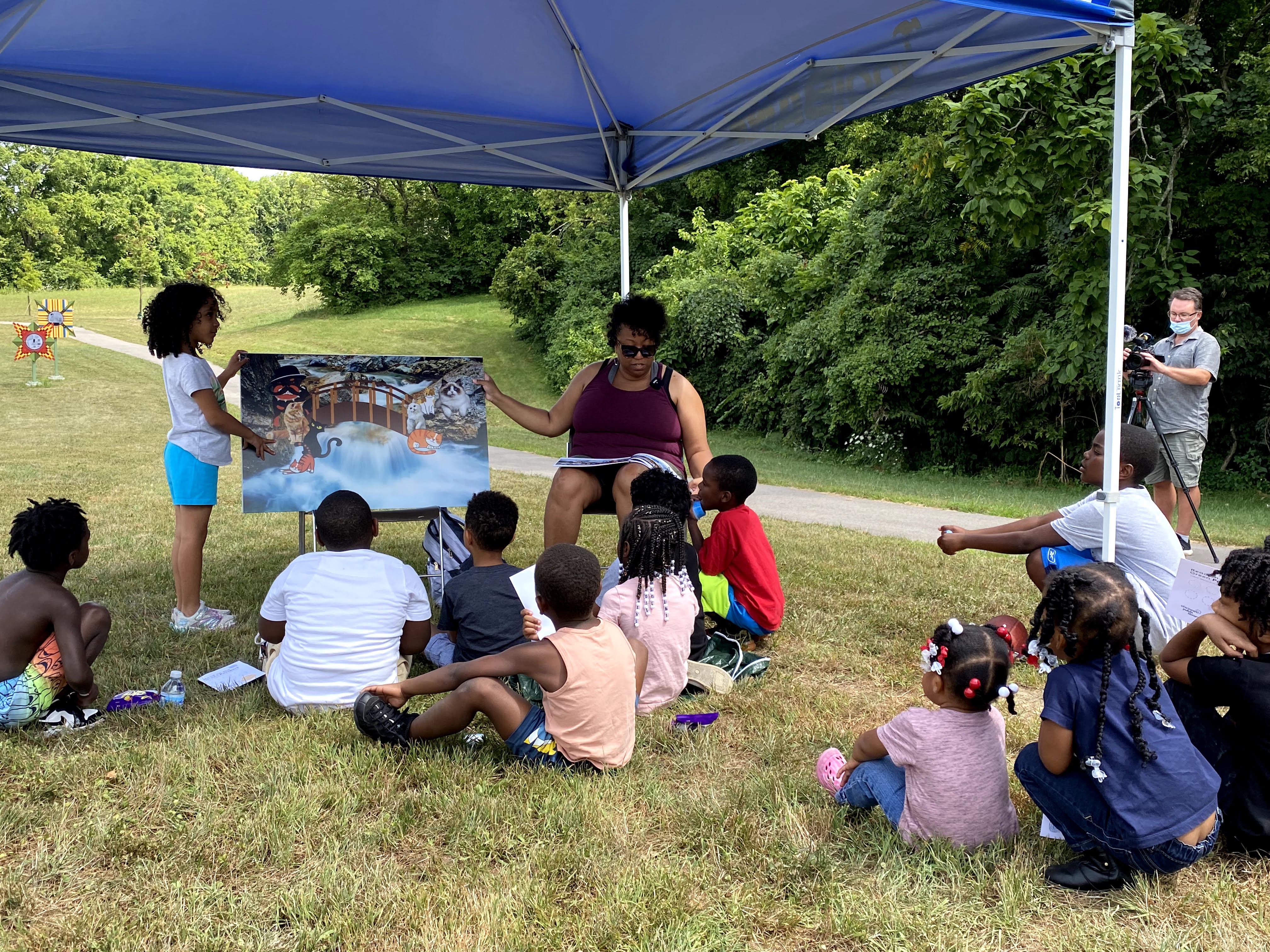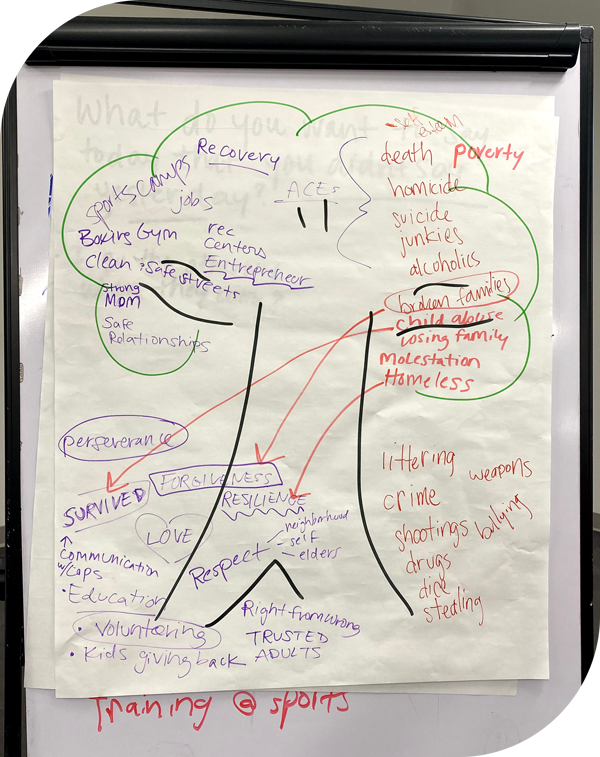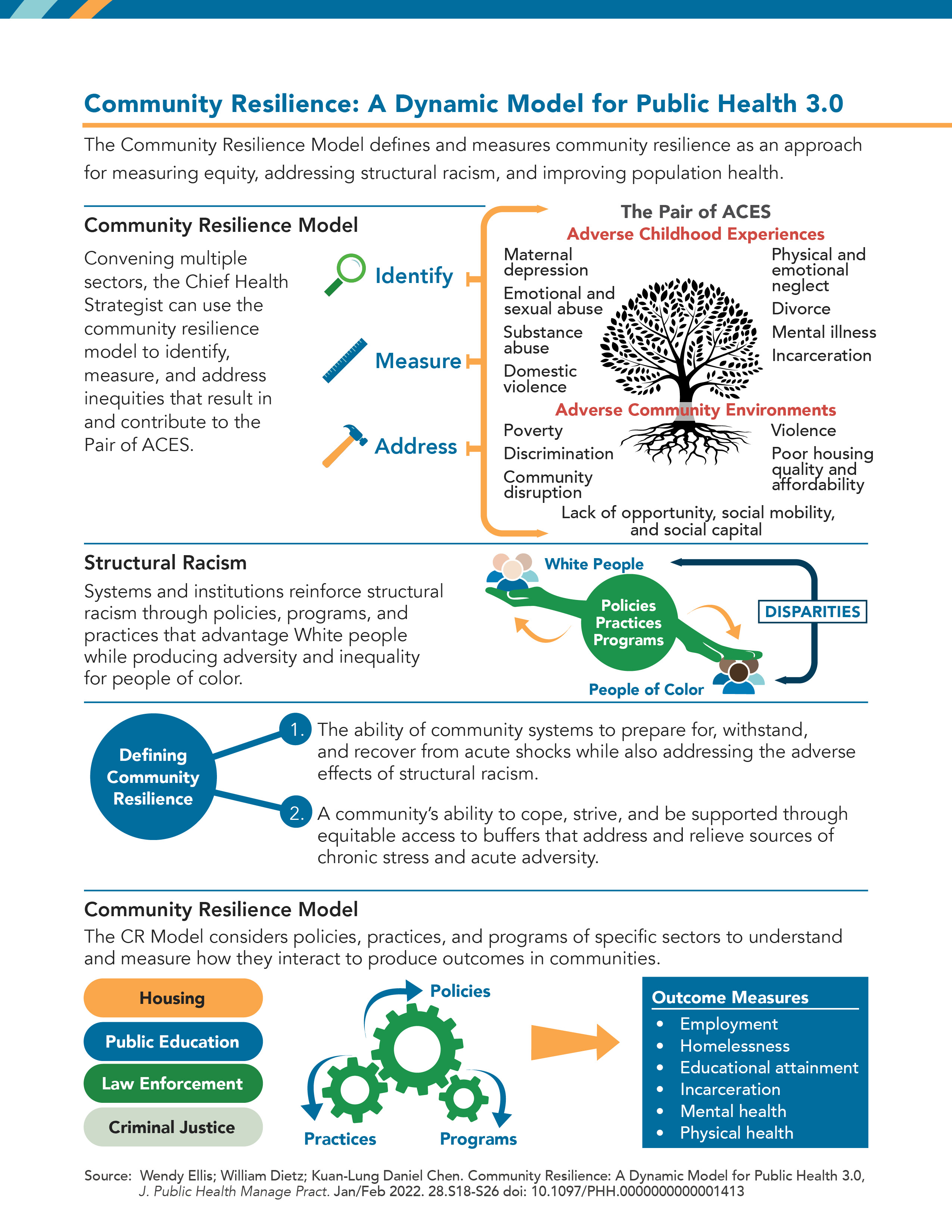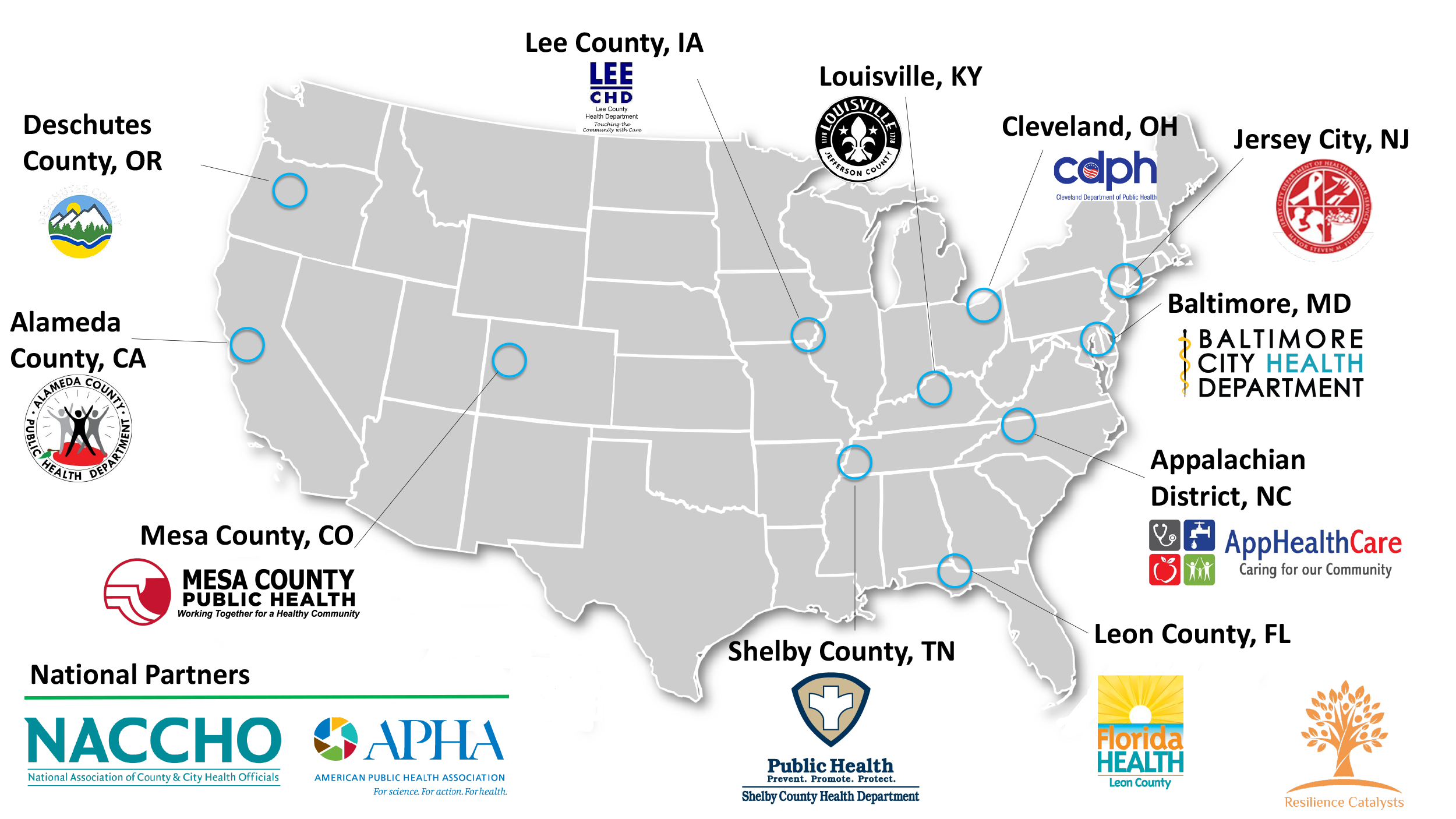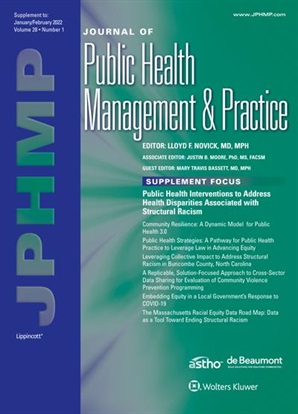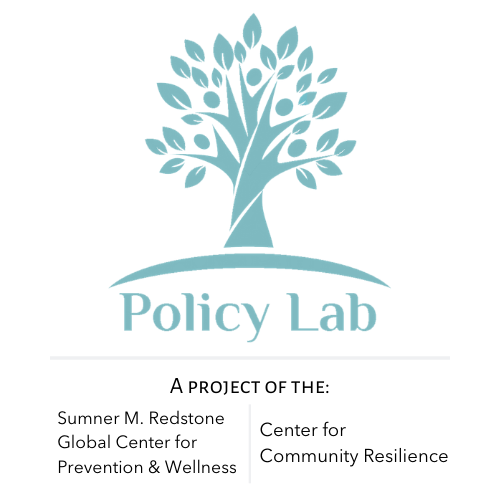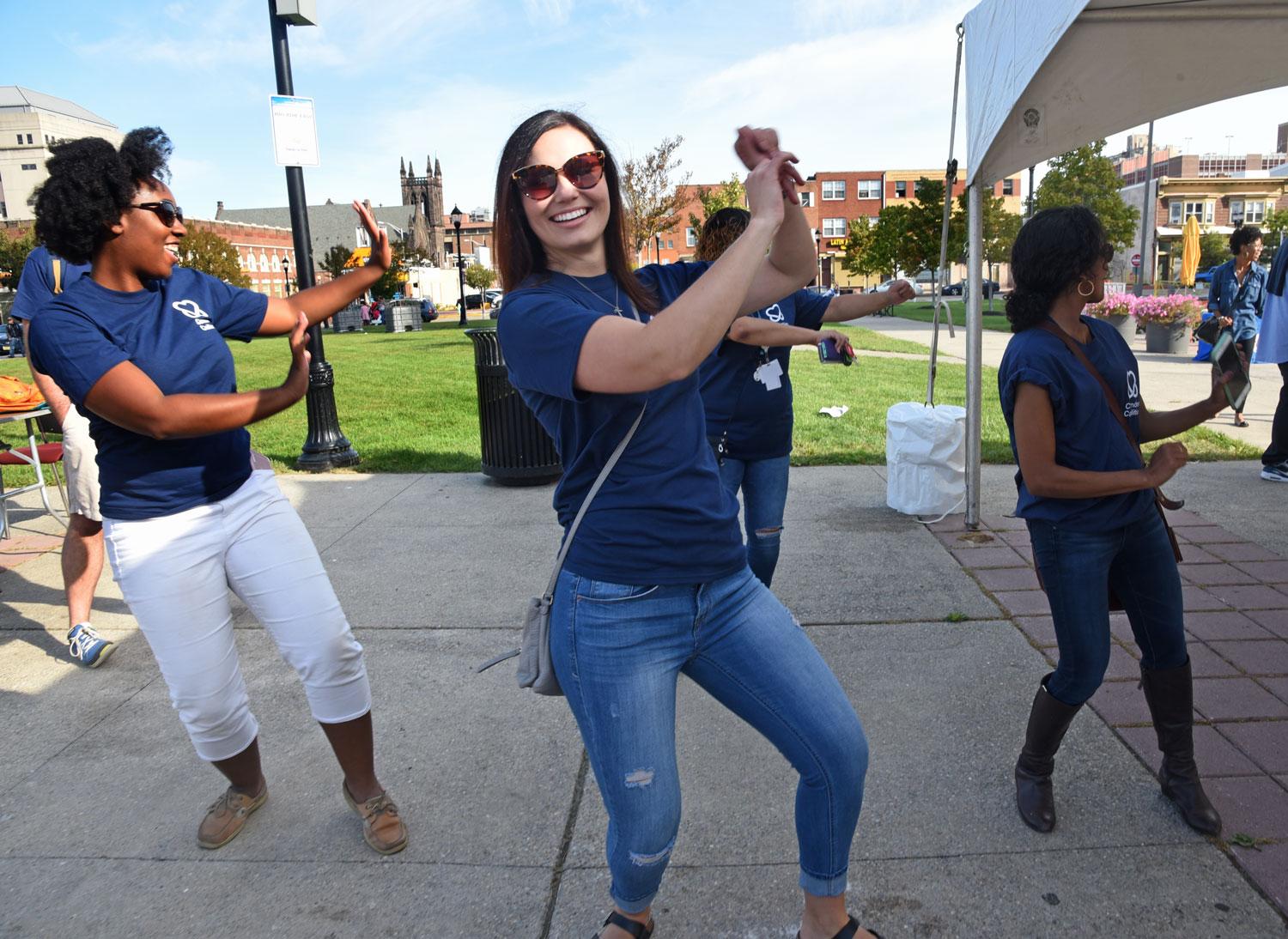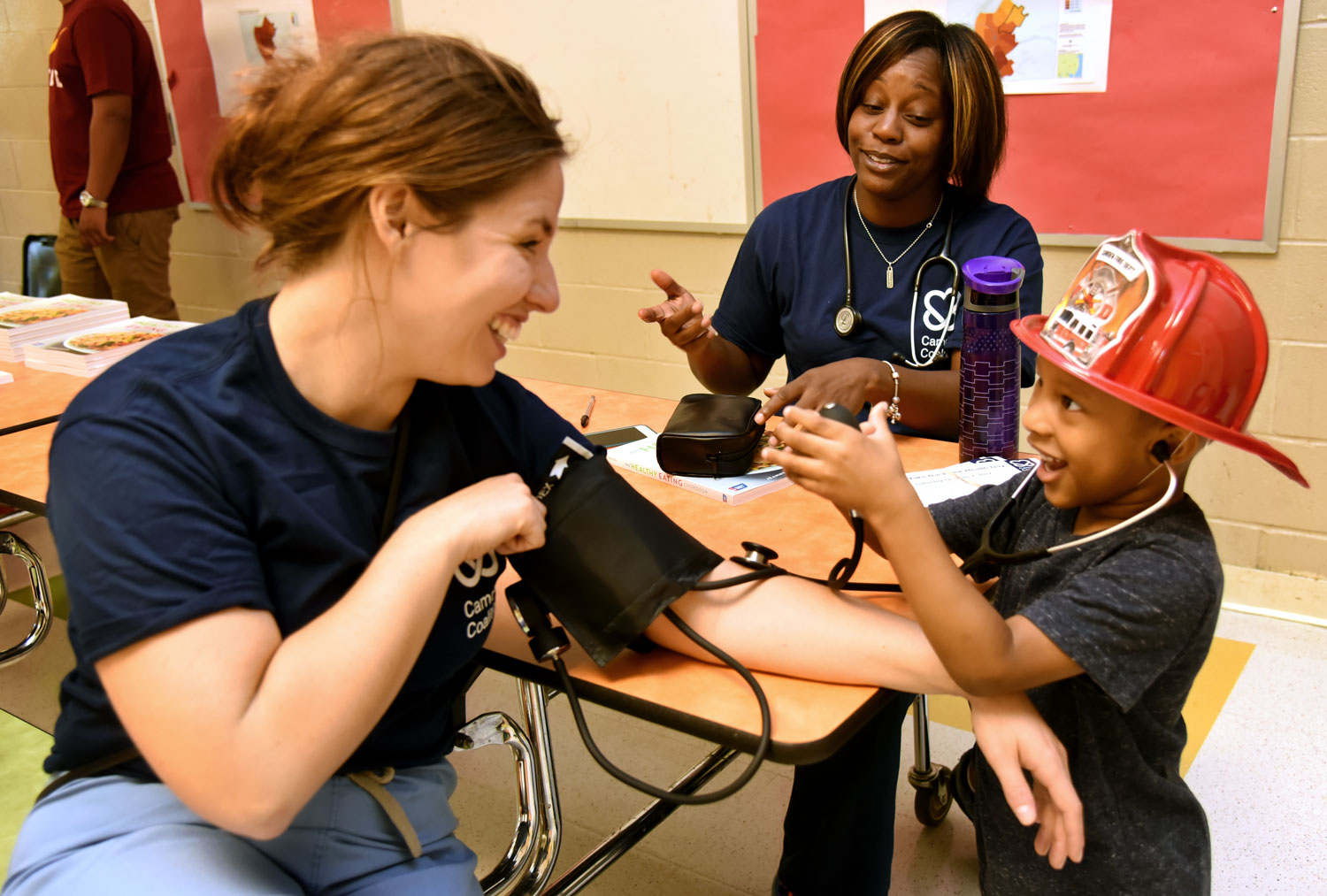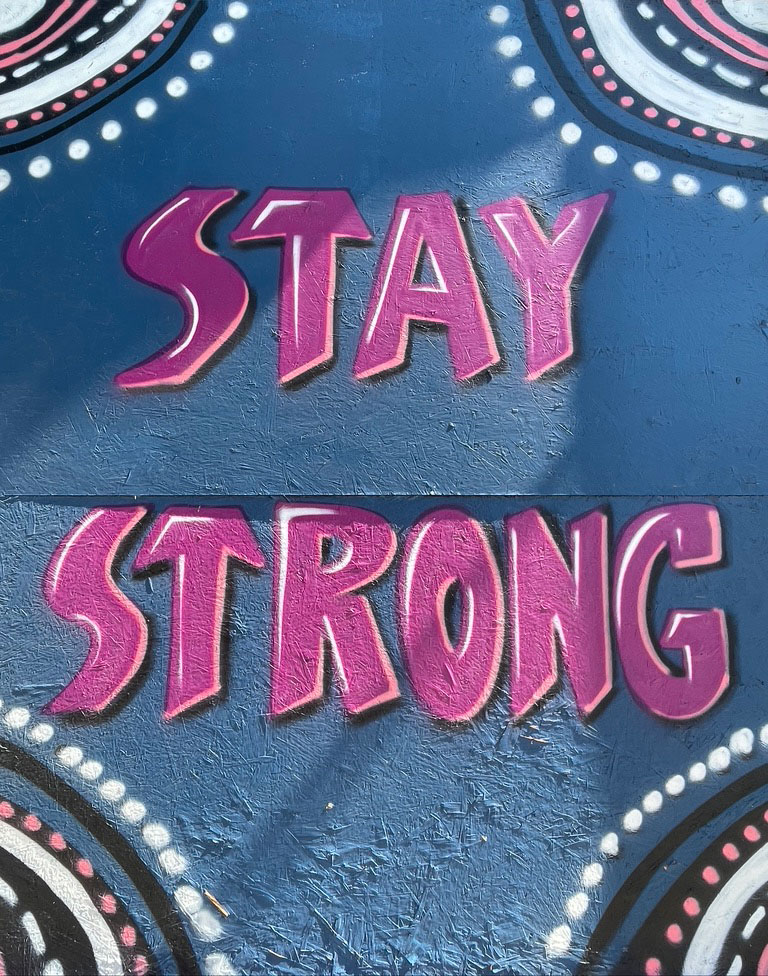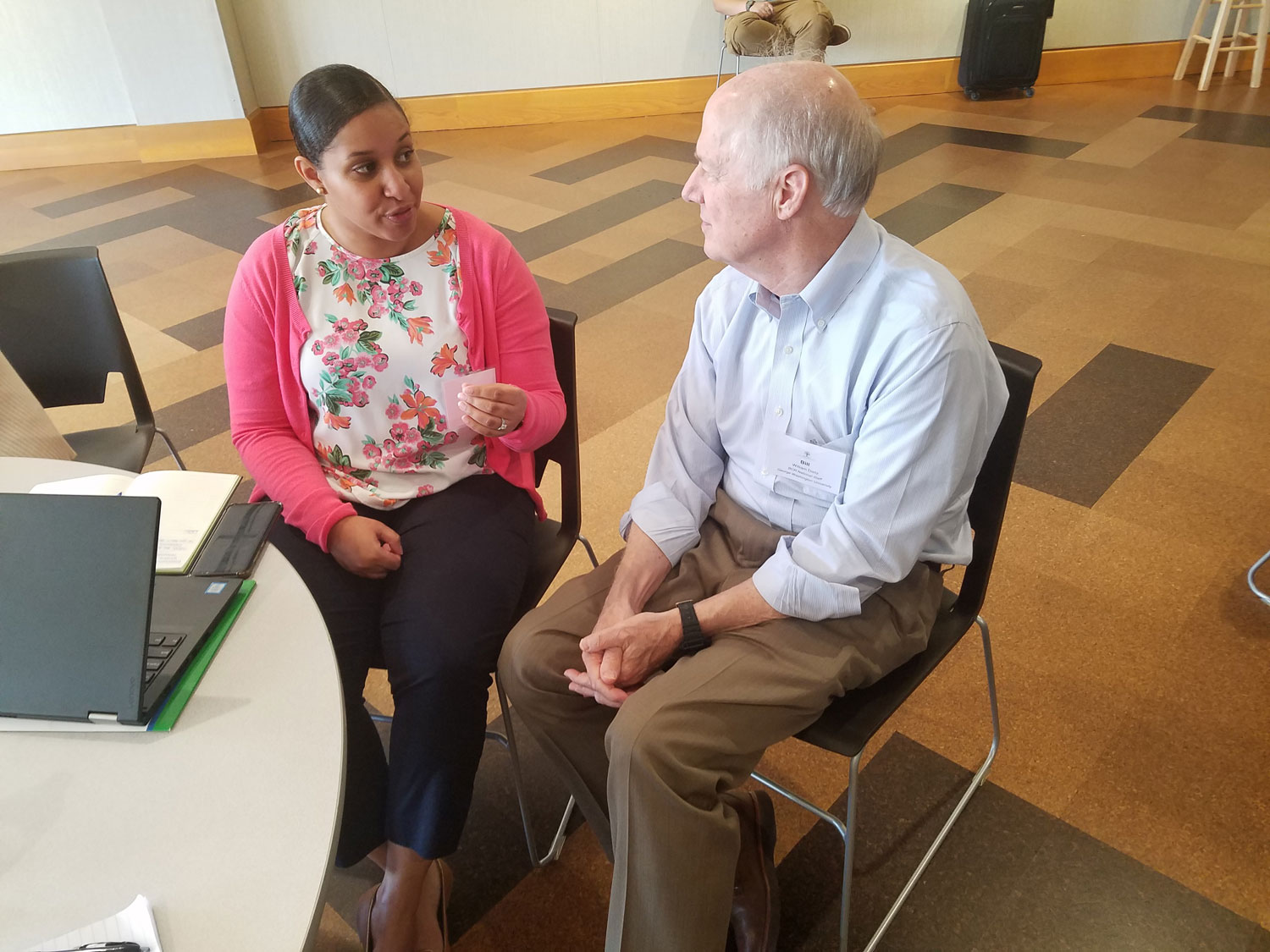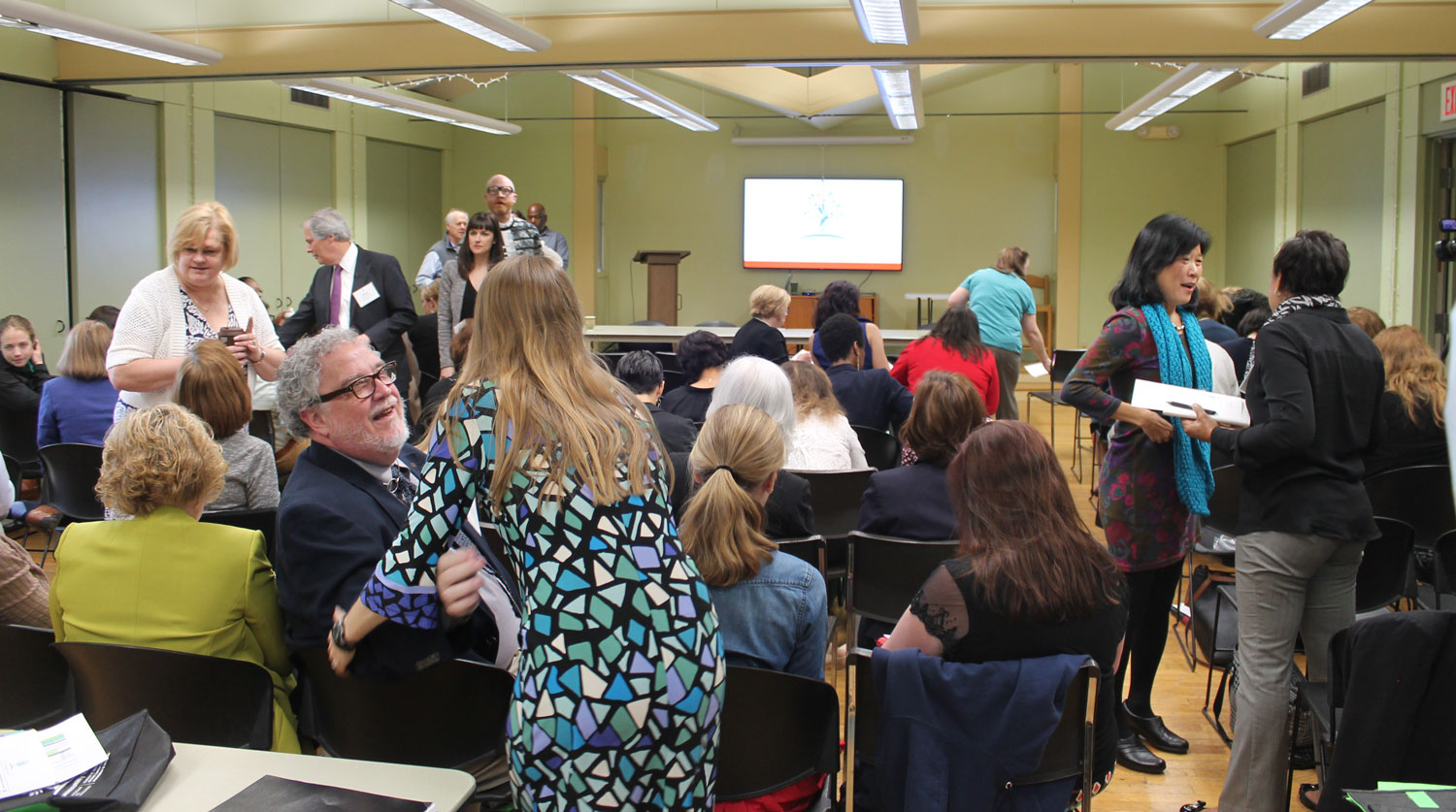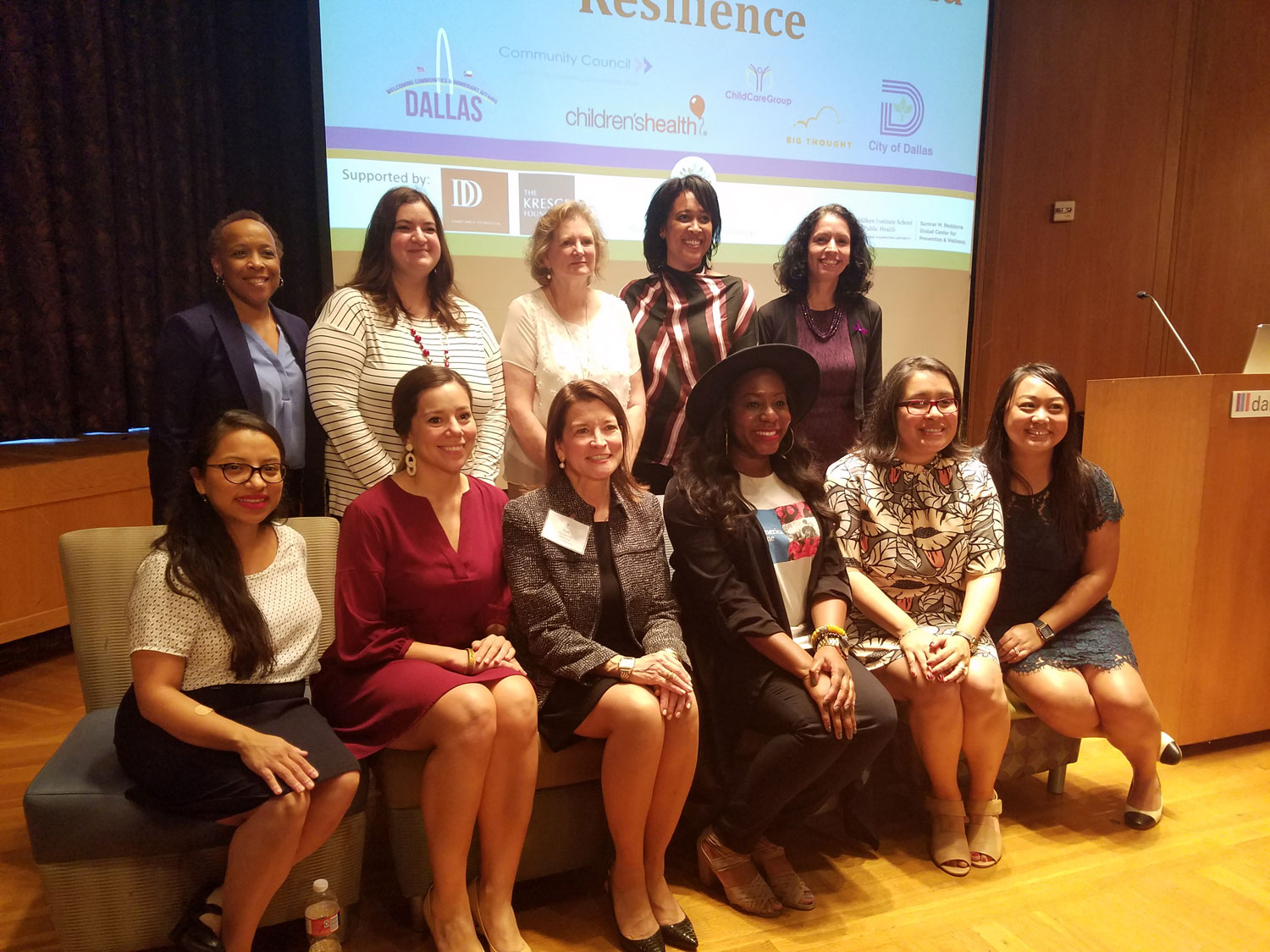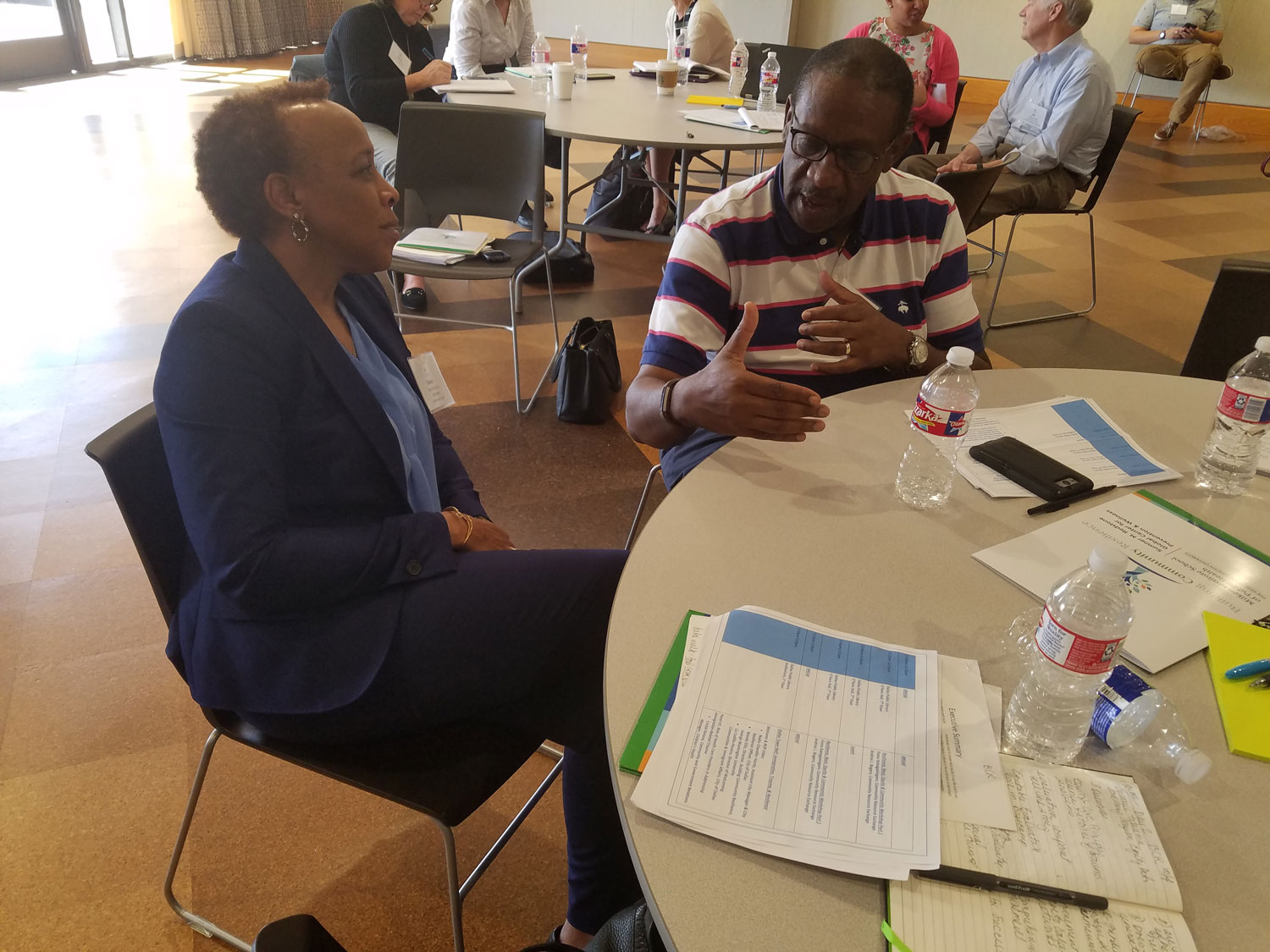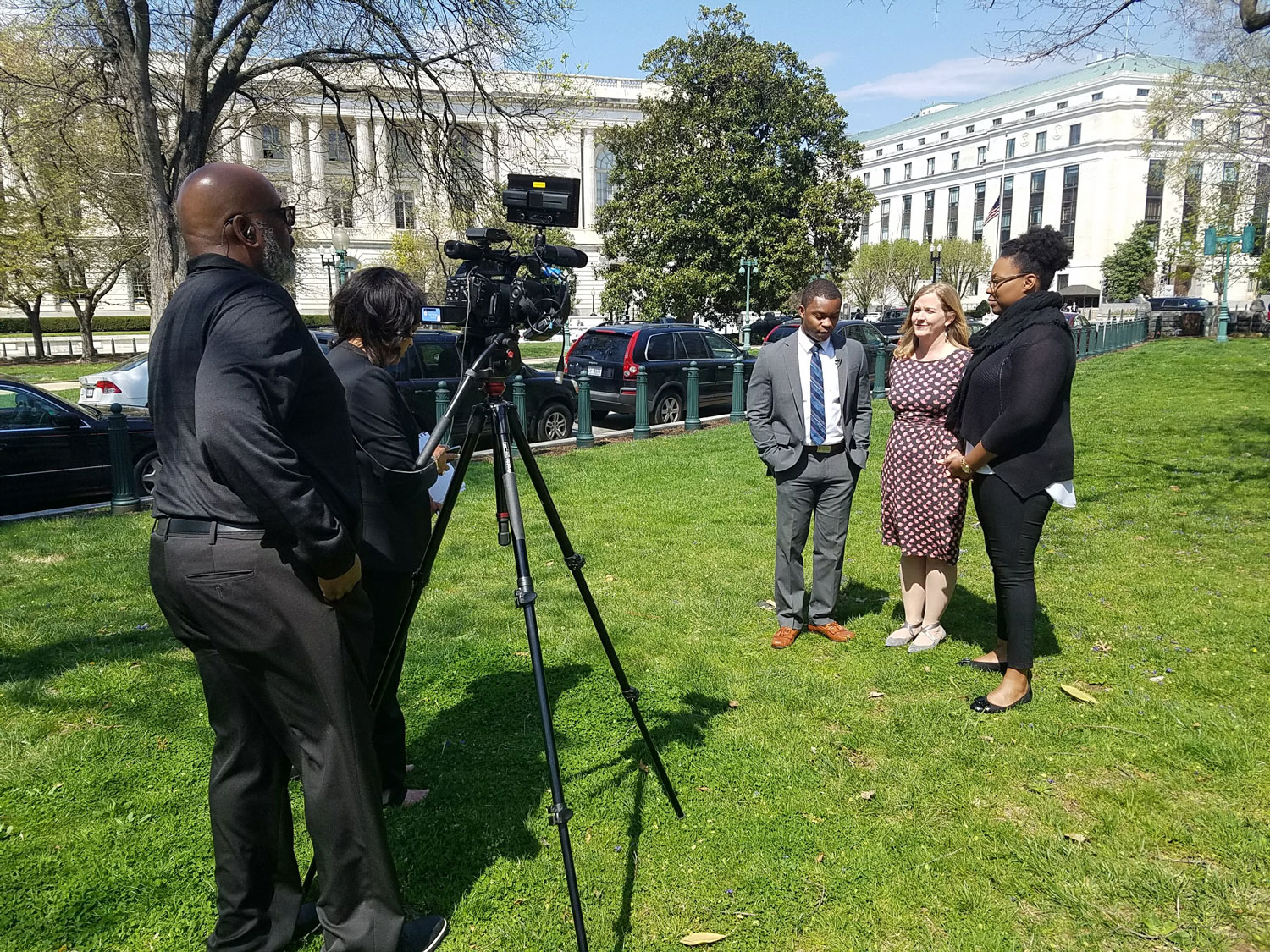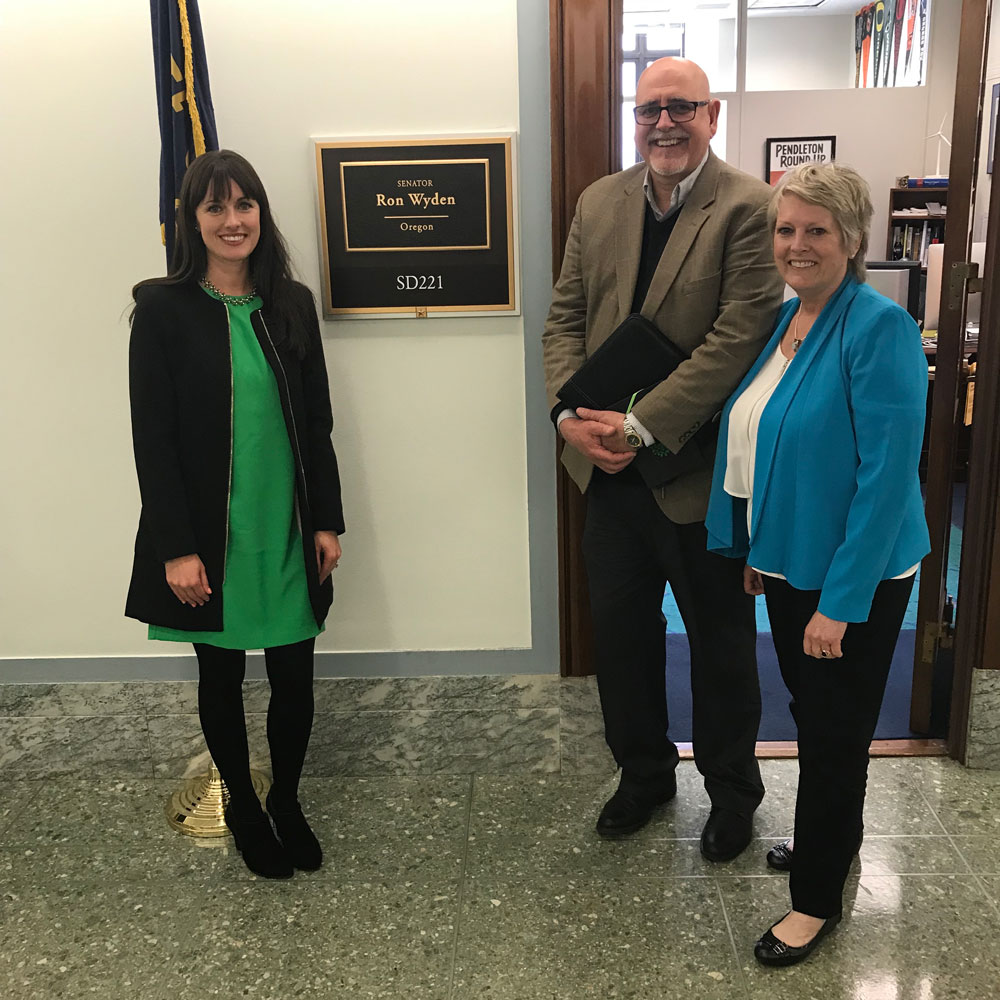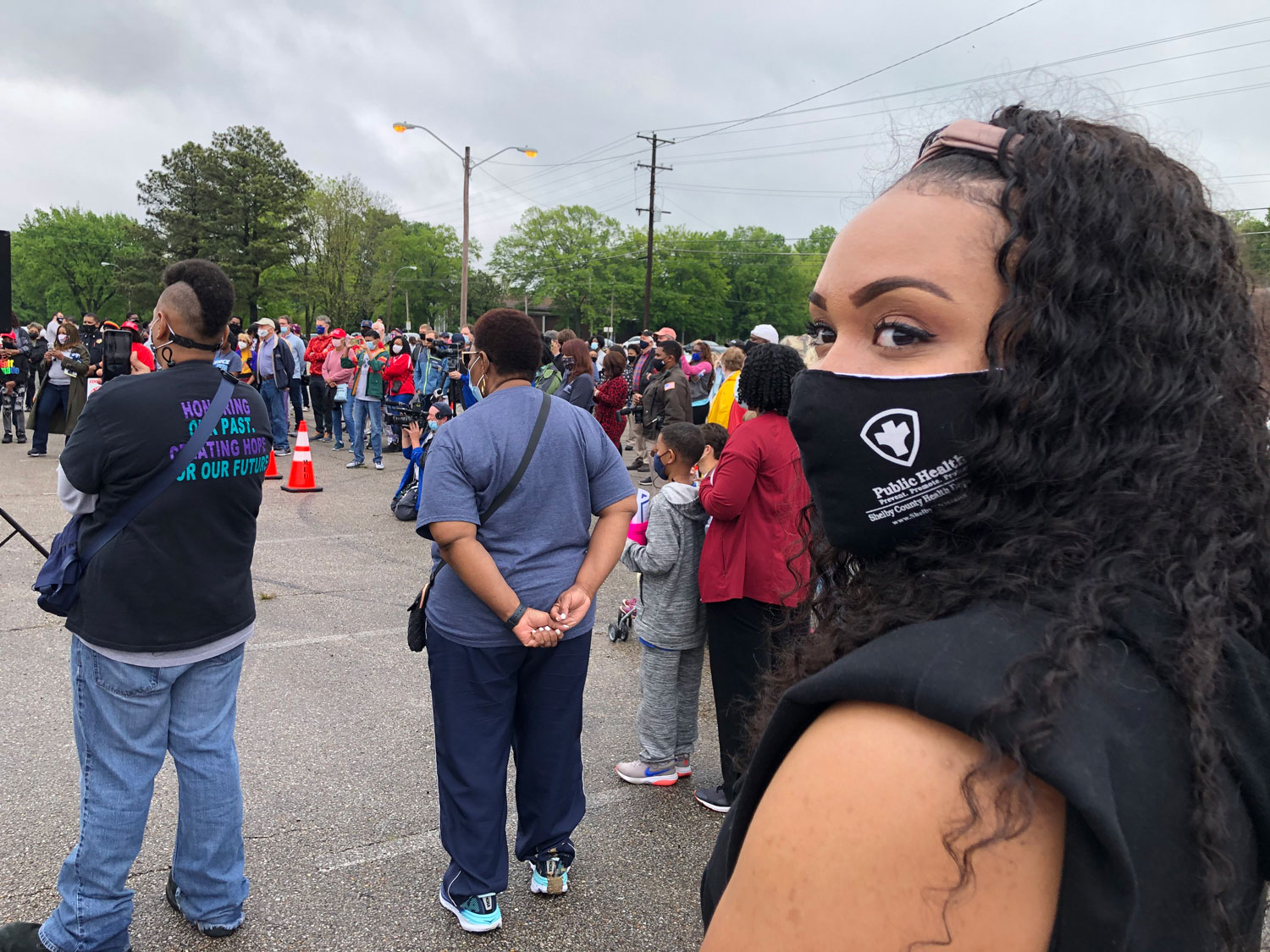2021 Annual Report
Center for Community Resilience
2021 Annual Report
Table of Contents
Systems Change and Transformation
I. Building Community Resilience: Cross-Sector Collaboration for Community Well-Being
Infographic – Community Resilience: A Dynamic Model for Public Health 3.0
II.Resilience Catalysts in Public Health
III. Truth & Equity Initiative
Gallery - A Look Back: CCR Throughout The Years
Letter from the Director
There is
hope in
TRUTH.
In our movement to build community resilience, we consistently make space for communities to hold difficult conversations about the Truth of inequity. Truth—with a capital T—is the truth captured in our historical record, and in the policies and programs written to systematically subjugate, oppress, and erase people of color.
We cannot change that which we cannot speak. We cannot hold ourselves accountable for that which we cannot measure. For these two reasons, the Center for Community Resilience forged ahead in 2021 with two important and innovative strategies to disrupt cycles of systemic racism. The first involved a process of Truth & Equity in Cincinnati. The second introduced an Equity Dashboard to support our public health partners as they address racism as a threat to community health.
Over the past year, we forged even deeper relationships with communities, fostering hope in the face of fear by providing support, tools and resources to target specific systems and policies that undermine a community’s ability to bounce back from COVID-19. We shared the Truth of systemic racism in housing, public education, economic development, law enforcement and criminal justice in our first-ever documentary.
Although the film highlights the history of racial oppression, exclusion, and erasure in Cincinnati, the story is representative of any town in America.
In this annual report, I am proud to share our continued commitment to honoring community by telling Truth in the face of fear—a Truth that ultimately fosters hope and resilience. In 2022, we will continue to work across sectors to stand up for Truth. In doing so, we will promote healing and foster equity. Equity as measured by greater access to the resources, supports, and buffers that enable communities to thrive.
This is what community resilience looks like.
Thank you for your continued support in the resilience movement!
Dr. Wendy Ellis
Director, CCR
The Center for Community Resilience (CCR) inspires, supports, and sustains a movement of communities throughout the country working to overcome the root causes of childhood trauma through comprehensive solutions that dismantle systemic drivers of inequity. In 2021, we expanded our efforts to establish cross-sector partnerships aimed at aligning program, practice, and policy to address adverse childhood experiences in the context of adverse community environments—the Pair of ACEs.
This included adding four new sites to our Resilience Catalysts Network, increasing our reach to 20 communities nationwide. We also expanded our approach into the curriculum here at The George Washington University’s School of Public Health as part of the training of the next generation of public health leaders.
With an explicit focus on equity, prevention, and root causes, our Pair of ACEs framing focuses on systemic inequities that limit access to resources supportive of community resilience. Our technical assistance facilitates community conversations, policy and data analysis, and provides advocacy guidance, to help community and elected leaders, institutions, funders, private investors, and community collaboratives who champion trauma- and equity-informed transformations. Our network includes the Building Community Resilience (BCR) Collaborative, the Resilience Catalysts (RC) in Public Health, and the Truth & Equity Initiative. We also advance and connect our work through the Policy Lab and our Fostering Equity programs. Here are just a few highlights of this work from the past year.
I. Building Community Resilience:
Cross-Sector Collaboration for Community Well-Being
The Building Community Resilience (BCR) Collaborative is a national network of cross-sector partners working to improve the health and life outcomes of children, families, and communities. Coalitions in six regions across the country—Cincinnati, Ohio; Dallas, Texas; Oregon; Washington, D.C., Maryland, and Virginia; Washington State; and Missouri/Kansas—are using the BCR process to work across sectors to prevent trauma, foster equity, and create greater access to resources that support child, family, and community resilience. CCR’s Policy Lab offers the network tailored technical assistance to achieve targeted goals, including strategic planning, facilitation of cross-sector information sharing, support for data and measurement, development of advocacy strategies, convenings, and communications support, as well as customized tools and resources.
Supporting Communities Through a Pandemic – 2021 BCR Collaborative Highlights
Throughout the COVID-19 pandemic, housing instability, food insecurity, and unemployment have impacted the health and social and economic well-being of children and families across the country. While the impacts are wide-reaching, communities of color, particularly Black and Latino, endured the greatest health and economic impact. In the face of organizational challenges, BCR networks continued serving their communities during this critical time.
- Oregon – Through the Fostering Hope Initiative, our partners at Catholic Community Services coordinated with local schools and health and social services providers to distribute more than 7,740 food boxes with a monetary value of more than $200,000 worth of food that would have gone to waste. Trillium Family Services opened a new facility that will offer secure inpatient care for adolescents ages 12 to 18.
- Cincinnati – In response to an increasing demand for mental health services, Cincinnati Children’s worked with a developer to create an app for managing anxiety. The app features a clinically vetted chat bot that engages in conversation with users, serving as a digital mental health coach.
- Dallas – Our partners at the City of Dallas led a campaign to distribute packages with face masks, COVID-19 information, and a Census QR code to 10,000 residents in places where COVID-19 was prevalent, which happened to intersect with the locations where people are thought to be hard to count.
- Washington, D.C., Maryland, and Virginia – Martha’s Table joined forces with three other Washington, D.C.-based organizations to launch THRIVE East of the River. The initiative—a key component of the strategic plan CCR helped Martha’s Table develop in 2020—coordinated with local foundations, corporations, and individual donors to provide $5,500 payments as well as grocery assistance to 500 families in Washington, D.C.’s Ward 8, a predominantly Black neighborhood where nearly one-third of the residents were already living in poverty pre-pandemic.
- Washington State – In response to the murder of George Floyd, Byrd Barr Place’s CEO Andrea Caupain Sanderson joined three other Black female CEOs to launch the Black Future Co-op Fund, the first entirely Black-led philanthropic organization in Washington State. Developed by and for Black Washingtonians, the Fund offers a new paradigm for philanthropy that uplifts Black-led solutions to ignite Black generational wealth, health, and well-being.
- Missouri/Kansas – To help St. Louis’s disproportionately impacted community members (i.e., low-to-moderate income African Americans and people of color) stop the spread of coronavirus and survive its adverse social and economic impacts, Alive and Well Communities joined with other community groups to launch the PrepareSTL initiative. Providing multilingual resources, the campaign used current trends and cultural awareness to present information in formats that resonated with different target audiences.
Engaging Faith Leaders: Spreading the Gospel of ACEs in Cincinnati
Representing the greater Cincinnati region in the BCR network, Joining Forces for Children (JFfC)—a regional initiative spanning multiple counties in Ohio, Kentucky, and Indiana—unites more than 50 organizations and 600 members from school systems, social service agencies, medical providers, parenting support organizations, early childhood professionals, home visitation services, and many others. The group is spearheaded by The Mayerson Center for Safe and Healthy Children at Cincinnati Children’s Hospital Medical Center.
Cincinnati Children’s Hospital is in Avondale, Cincinnati’s largest Black neighborhood where 40 percent of the nearly 7,000 residents live at or below the poverty level. Residents not only face high crime rates but are also on the cusp of gentrification, which is decreasing the stock of affordable homes and threatening to push long-time residents out of the neighborhood. To help residents process and understand the sources of personal stress, historical and community trauma, JFfC partnered with the Avondale Development Corporation to provide training on the Pair of ACEs framework and ways to support their neighbors with a trauma-informed approach. Initially labeled as “Trauma Ambassadors,” these Avondale residents took the science of ACEs to the streets, showing up at community events and in times of crisis to talk to people about what is going on in their lives and where they can turn for help.
As JFfC continued to partner with the Trauma Ambassadors—offering strategic counsel as well as support with event planning and fundraising—the Ambassadors realized they needed a new name that would reflect a more uplifting goal. Working diligently to heal a neighborhood, they were not ambassadors for trauma; they were ambassadors for hope. The group renamed themselves Resilience Over Our Trauma (ROOT) Ambassadors. Inspired by the Pair of ACEs Tree, which helps communities visualize what’s in their soil and work across sectors to gain equitable access to the resources they need to thrive, ROOT is a nod to the ambassadors’ deep community connections and commitment to nourishing and nurturing well-being.
Understanding the importance of the church in the lives of many Avondale residents, JFfC worked with ROOT Ambassadors to engage the faith-based community. In early 2021, the group developed a scripture guide that helps Avondale pastors better understand trauma, ACEs, and resilience using biblical text to educate their congregations. Learning about the complex and intergenerational impacts of trauma has allowed pastors to approach families with a deeper understanding of the root causes of community and race-based stress. Through a partnership with the Avondale Concerned Clergy Council, the ROOT Ambassadors are now working with more than 50 churches to support parishioners and strengthen the community’s resilience.
Preparing Providers to Deliver Trauma-Informed Care in Washington, D.C.
Bolstering the ability of mental health professionals in Washington, D.C., to meet the unique mental, emotional, and social developmental needs of young people and their parents and caregivers, is at the center of a collaboration between Trinity Washington University and Community Wellness Ventures. These members of the Washington, D.C. BCR Network are partnering to provide professional development to clinical mental health and school counselors.
Aimed at ensuring mental health practitioners use culturally competent, trauma-informed approaches to meet clients’ needs, they developed a training curriculum based on the BCR approach of addressing trauma through the lens of the Pair of ACEs. The first course features modules to increase participants’ multicultural competency as it relates to racial trauma; competency-based instruction combined with evidence-based research on ACEs; and research on aspects of trauma to become trauma-informed and trauma-responsive. The second course focuses on expressive arts and creative arts therapies, which encompass healing and therapeutic techniques proven to be effective in trauma intervention.
The inaugural cohort consists of seven practitioners in Wards 7 and 8—two predominately Black communities that endure high rates of poverty and community violence. Upon completion of the training in April 2022, these practitioners will help train other colleagues and serve as mentors to area counselors.
“This pilot project is an outcome of Trinity being an active member of the D.C. Building Community Resilience Collaborative, sponsored by the Milken Institute of Public Health at George Washington University,” said Dr. Cynthia Greer, associate professor of counseling at Trinity and the leader of this new initiative. “As members of this collaborative, we listened carefully to those who are on the ground, in agencies and community organizations, and we gained a better understanding of the specific needs of underserved communities and those who serve them.”
II. Resilience Catalysts in Public Health
Since 2019, CCR has collaborated with the National Association of County and City Health Officials (NACCHO) and the American Public Health Association (APHA) to support and expand the Resilience Catalysts in Public Health, a national network of local health departments (LHDs) that are leveraging partnerships and community voices to eliminate adversity, build resilience, and foster equity through policy and programs.
The Resilience Catalysts (RC) network uses the Community Resilience (CR) framework to connect wellness to a local context by focusing on place-based and systems-driven community and population health outcomes. Funded by the CDC’s National Center for Injury Prevention and Control, the Resilience Catalysts in Public Health is one of the agency’s major strategies for implementing Public Health 3.0 tactics in pursuit of preventing ACEs and fostering equity. The approach supports the role of Chief Health Strategists in working across sectors—including housing, public education, law enforcement, and criminal justice—to drive initiatives that address root causes of ACEs (e.g., homelessness, incarceration rates, educational attainment).
CCR’s approach deepens the understanding of systemic issues facing the community while building trust and buy-in with residents. The CR framework translates decades of rigorous behavioral science, public health, and public policy research, and makes it actionable for community members and local public health leaders to address systemic challenges and increase access to resources and opportunities through an agenda prioritized by the community.
“Often in public health, the communities we want to connect with and be in service to have a certain degree of well-earned mistrust. Communities often feel talked at rather than talked to. CCR’s process offers a nuance and richness of appreciation that reflects what is going on in the community, which in turn builds trust.”
Sarah Bacon, PhD, senior advisor on adverse childhood experiences for the CDC’s Office of Strategy and Innovation
The RC process provides a platform for participating health departments to strengthen organizational leadership; form strategic, cross-sector partnerships; connect policy to public health outcomes; and develop equity measures that improve community health. Local public health leaders use the CR framework to demonstrate the effects of structural racism and shift cultural norms by holding space for conversations on racial and social inequity with partners and community members. By leveraging CCR tools, resources, and technical assistance, public health leaders across the country are developing a common language to advance equity and engage community stakeholders in the process.
In 2021, CCR undertook a competitive process to select four new local health departments and their community partners. Lee County, Iowa; Jersey City, New Jersey; Cleveland, Ohio; and Deschutes County, Oregon joined the RC network. This brings the total number of RC communities to 12.
NACCHO also highlighted the RC process in its quarterly publication, NACCHO Exchange.
2021 Resilience Catalysts in Public Health Highlights
Ending Evictions in Louisville
Kentucky’s Louisville-Jefferson County is highly segregated by race and income, the result of systematic racist practices such as redlining and discriminatory lending policies and practices. Eviction filing rates are higher in parts of the country that have higher concentrations of poverty and Black residents. Over the past year, CCR led Louisville Metro Department of Public Health and Wellness, one of the first Resilience Catalysts network partners, through a System Dynamics Modeling (SDM) process to identify levers that will create supportive policies for renters at the state and local level, and, in the long term, improve health outcomes and promote health equity throughout local communities.
SDM allows local health departments to build consensus and a shared understanding around key issues in the community, establish cross-sector partnerships, and identify resources and supports in the community. In each RC site, CCR gathers diverse stakeholders with varying professional expertise, life experiences, demographic characteristics, and knowledge about the community. The group completes a series of guided activities to produce a variety of data that create a snapshot of local challenges and opportunities.
In Louisville, CCR interviewed local stakeholders to understand local politics and issues, then integrated this information into an Equity Dashboard.
Louisville is using the dashboard to determine what policies and factors may influence the eviction rate, such as those related to substance abuse and treatment. Using historical data, the CCR team creates prospective models that can help inform policy and practice reforms aimed at lowering the eviction rate by simulating the effect of change in rental policies as well as increasing access to mental health and substance abuse supports.
“There are so many things tied to how and why someone might experience eviction. And once you experience an eviction, it becomes even more difficult to secure stable housing.”
Angela Graham, community health administrator for the Louisville Center for Health Equity
Coming in 2022
Equity Dashboard
CCR’s innovative new tool allows communities to determine how policies and programs influence health disparities, poverty, educational attainment, incarceration rates, and access to economic mobility at the local level.
Simulating how various policies, investments, and philanthropic engagement shape a community, the Equity Dashboard is designed to identify root causes of social inequities and help communities come together to promote childhood and community resilience. Generated by models specifically built to each community’s unique context, these simulations can be customized to forecast how policy changes or public and private investments would create improved outcomes for community members. By adjusting different levers (e.g., build more affordable housing units, create new jobs, increase teacher grants) users can generate a range of simulated outcomes (e.g., reduced premature deaths or increase in median income). Drawing from historical data, existing research, and input from community stakeholders, the simulations quantify community needs and suggest combinations of investments and policy solutions that will most effectively address those needs.
Combining the powers of public health research and systems engineering, the Equity Dashboard has the potential to project a pathway to creating an equitable future for communities nationwide. Each model integrates between 180 and 200 variables (e.g., number of eviction filings per year; unemployment rate; percentage of population dying prematurely of illness; early childhood education slots available). Currently, data are manually collected and uploaded into the system. As CCR secures more investment in the tool, we plan to integrate machine learning into the process, which will allow us to bring the Equity Dashboard to more communities.
III. Truth & Equity Initiative
In October 2020, in partnership with the Association of Children’s Museums, and with support from the Aspen Ascend Accelerator Fund, CCR launched a pilot project to implement a process of Truth & Equity in Cincinnati, Ohio.
Throughout 2021, CCR worked with community partners in Greater Cincinnati—including leaders from healthcare, arts, academia, culture, education, business, and philanthropic sectors—to build political will to dismantle levers of structural racism and foster racial equity in the region. Working with Cincinnati BCR partners, we are building individual and organizational capacity to foster racial equity across all the city’s sectors through historical education, advocacy training, and community leadership. To ensure all activities are informed by and grounded in the voices of community members, CCR and its partners led community conversations, hosted racial healing circles, facilitated leadership development opportunities, and developed a documentary that collected and uplifted stories from those most impacted.
The 18-month effort yielded a community-driven policy agenda focused on economic mobility for African-American women and closing the racial wealth gap using small dollar mortgages. To help lawmakers understand the complexity of the issues that need to be addressed, CCR produced a documentary telling the story of racial inequity through the lens of four Cincinnati communities.
Truth & Equity by the numbers:
8
Organizations in the Coalition
13
Community events
175
Community voices raised through listening sessions, story quilt conversations, and racial healing circles
4,300
People attended
We are the Story:
A Visual Response to Racism
9
Equity Champions
2021 Truth & Equity Highlights
-
Healing: Connecting Community through Art and Conversation
More than 4,300 people visited the National Underground Railroad Freedom Center to view We Are the Story: A Visual Response to Racism, a textile exhibit featuring quilts with social justice messages. To complement the exhibit and advance the discussion on racism, the coalition launched a series of facilitated community conversations called, “Story Quilts – Join the Conversation.”
-
Capacity Building: Facilitating Racial Healing Circles
The coalition trained 85 community members to facilitate Racial Healing Circles (RHCs) using Dr. Gail C. Christopher’s Rx Racial Healing approach to promote empathetic engagement and provide space for participants to lean into their shared experiences.
-
Leadership Development: Cincinnati Equity Champions
CCR collaborated with coalition partners to launch the Equity Champions Leadership Development program to equip emerging community leaders and advocates with knowledge, skills, and relationships to support their work to foster racial equity. The inaugural cohort includes nine Equity Champions who work across sectors. Guided by CCR, the coalition developed the curriculum and hosted a series of learning sessions to prepare participants to catalyze cultural and institutional transformation; promote anti-racist practices; and advocate for justice, diversity, equity, and inclusiveness in their professional and personal lives.
-
Storytelling: Documenting the Impacts of Structural Racism in Cincinnati
CCR directed and produced its first-ever documentary: America’s Truth: Cincinnati. The film recounts the long history of unjust policies and practices that created barriers to safety, health, and well-being for Black Cincinnatians, and offers a roadmap of policy opportunities to foster racial equity. The documentary premiered on January 18, 2022, during Cincinnati’s 2nd Annual National Day of Racial Healing. CCR is currently exploring distribution options to make the documentary publicly available.
Coming in 2022
Truth & Equity: Washington, D.C.
In the fall of 2021, CCR began strategizing a process of Truth & Equity in the District of Columbia with seed funding from The George Washington University Equity Institute Initiative. Learning from our efforts in Cincinnati—as well as the relationships developed during our six years of Building Community Resilience in the District—this project will convene a local coalition of cross-sector partners to use truth-telling, community engagement, and systems change to establish more equitable policies and practices related to affordable housing, economic mobility, community violence, and D.C. statehood. With policy transformation as the end goal, we will work closely with our partners across Washington, D.C. to co-create a community-driven advocacy agenda that pushes for immediate policy changes that secure racial equity for children and families in the nation’s capital.
CCR’s Policy Lab provides a national platform to advance the advocacy efforts of the BCR and RC networks and support innovative policy solutions that foster equity and address the Pair of ACEs. The Policy Lab’s nonpartisan approach helps CCR support significant legislative wins to improve child and family well-being, strengthen community resilience, foster equity, promote cross-sector integration, and dismantle systemic drivers of adversity.
2021 Policy Lab Highlights
Informing the Federal Policy Agenda
We started the year with new leadership—in the White House and on Capitol Hill. With incoming federal policymakers focused on addressing the pandemic and restoring the nation’s economy, CCR saw an opportunity for both the Biden-Harris Administration and the 117th Congress to do so in a way that strengthens communities across the country—particularly communities of color—by addressing the root causes of deeply entrenched inequity.
In A Resilient Nation: Considerations for COVID-19 Relief, we leveraged the experiences of BCR communities to outline policy considerations and urge federal policymakers to enact policies that support child, family, and community resilience and advance racial equity.
Tapping into the experiences of network of partners that are working on the front lines of their communities to create policy change and address long-standing socioeconomic and health disparities, CCR also released the Resilient Nation Federal Policy Agenda, featuring a series of policy recommendations all grounded in the Pair of ACEs.
STRONG Support for Children Act
In 2021, CCR worked with Rep. Ayanna Pressley (MA-07) to advance the STRONG Support for Children Act, the most comprehensive federal public health response to address the root causes of childhood trauma within communities. Pressley first introduced the bill with input from BCR network sites in 2020, then reintroduced it in June 2021. CCR staff appeared alongside other advocates at a virtual press conference. To build momentum for the legislation, CCR created an advocacy guide featuring messaging, sample social media posts, and a script for partners to use to reach out to their members of Congress and urge their support. Pressley joined partners at a virtual BCR convening to talk about the bill and respond to questions. The Policy Lab team also helped draft a letter from Pressley calling on President Biden to lead an annual trauma summit to raise awareness of trauma-related issues and solutions.
RISE from Trauma Act
Senate Majority Whip Dick Durbin (D-IL), Sen. Shelly Moore Capito (R-WV), Sen. Tammy Duckworth (D-IL), and Sen. Lisa Murkowski (R-AK) introduced the RISE from Trauma Act in June 2021. The measure would dramatically increase funding for community-based efforts to prevent and mitigate the impact of trauma and expand training and workforce development efforts to support healthcare workers, educators, social service providers, first responders, and community leaders in fostering resilience and delivering services to heal the impact of trauma. The Policy Lab team worked with its partners to gather support and additional co-signers for the bill. This included collaborating with the Campaign for Trauma-Informed Policy and Programs to organize four congressional briefings to educate House and Senate staffers about how this legislation would support efforts aimed at addressing the Pair of ACEs.
Hill Days
After taking a hiatus in 2020 due to the pandemic, Hill Days returned in 2021 with a virtual format. CCR worked with network members in Oregon, St. Louis, and Washington State to connect with Congressional offices and reinforce the need for policies that promote community safety using trauma-informed approaches. Participants also advocated for continued COVID-19 federal housing protections, including an extension of the eviction moratorium and opportunities to leverage emergency housing assistance funds.
CCR offers trainings and resources that not only help policymakers, researchers, academics, nonprofits, and other stakeholders understand the trauma and disparities that stem from structural racism, but also support constructive conversations that lead to policy and systems changes. Working with our partners, we advance change by exploring how local history, ordinances and practices contribute to trauma and inequity in marginalized neighborhoods. Understanding the people and unique dynamics of a community is critical to the BCR process. Through this exploration, participants map out the collective experience of oppressive systems and policies, as well as the inequitable social structures that exacerbate individual traumas.
To support this process, CCR developed four Fostering Equity modules in 2020, each one representing BCR network experiences in centering equity at the heart of community resilience. In 2021, we updated Module I, revising the Policy Timeline to include the emerging “War on Truth” and discuss how legislative attacks on voting rights and public health will only increase adversity and inequity in our nation’s most vulnerable communities. With nearly 1,900 visits to the Fostering Equity page of our website over the past year, the modules are proving to be an integral part of local strategies to build community resilience. In 2021, CCR participated in eight virtual conferences and other events, reaching more than 1,500 stakeholders with tips and strategies for grounding their work in equity and community voice to build community resilience.
Preparing the Next Generation of Public Health
In addition to translating academic work and research into action in local communities throughout the country, CCR is drawing lessons from those communities to inform the next generation of public health workers. In the Spring of 2021, George Washington University introduced a new course developed and taught by CCR Director Dr. Wendy Ellis. Structural Racism and the Implications for Public Health is a graduate-level seminar that explores the relationship between—and collective impact of—race, racism, structural racism, and the social determinants of health. The course is designed to help future public health professionals identify and address levers of structural racism that influence public health.
Dr. Ellis is also tapping into the work of the BCR and RC networks and CCR’s CR framework to develop a course for GWU’s DrPH program. In Social Change and Collective Impact Dr. Ellis will teach the next generation of public health leaders how to leverage collective impact to address social justice issues in community. The course will debut in Fall 2022.
Coming in 2022
Much of CCR’s work to date will culminate in two new resources for the field that we hope will accelerate local efforts to dismantle systemic racism and advance community resilience throughout the country.
From Adversity to Resilience:
Branching Out Beyond the Pair of ACEs Dashboard
In 2021, CCR entered a new phase of our Pair of ACEs work with an additional framing that focuses on factors that promote community resilience. Tapping into the unique expertise, experience, and strengths of our Center and its network of partners, we created the Resilience Tree, which offers measurable indicators and can be adapted to local communities. Communities will be able to use the Resilience Tree to identify systems and supports working in their community, as well as those that need additional resources to be effective in promoting the community’s health and wellbeing. Communities can use these insights to make the case to policymakers, investors, and philanthropies that more funding is needed to fill these gaps.
Coalition Building and Communications Guide 2.0
CCR is also set to release a refreshed version of our Coalition Building and Communications Guide featuring lessons from our work over the past seven years. Since we released the first guide in 2018, CCR has become a formal entity, expanded the BCR network, researched and released our Fostering Equity guide, launched the RC network, and completed our first Truth & Equity initiative in Cincinnati. The updated guide will draw on lessons from this work and more to offer the essential building blocks for communities seeking to start or grow resilience and equity work across the globe.



